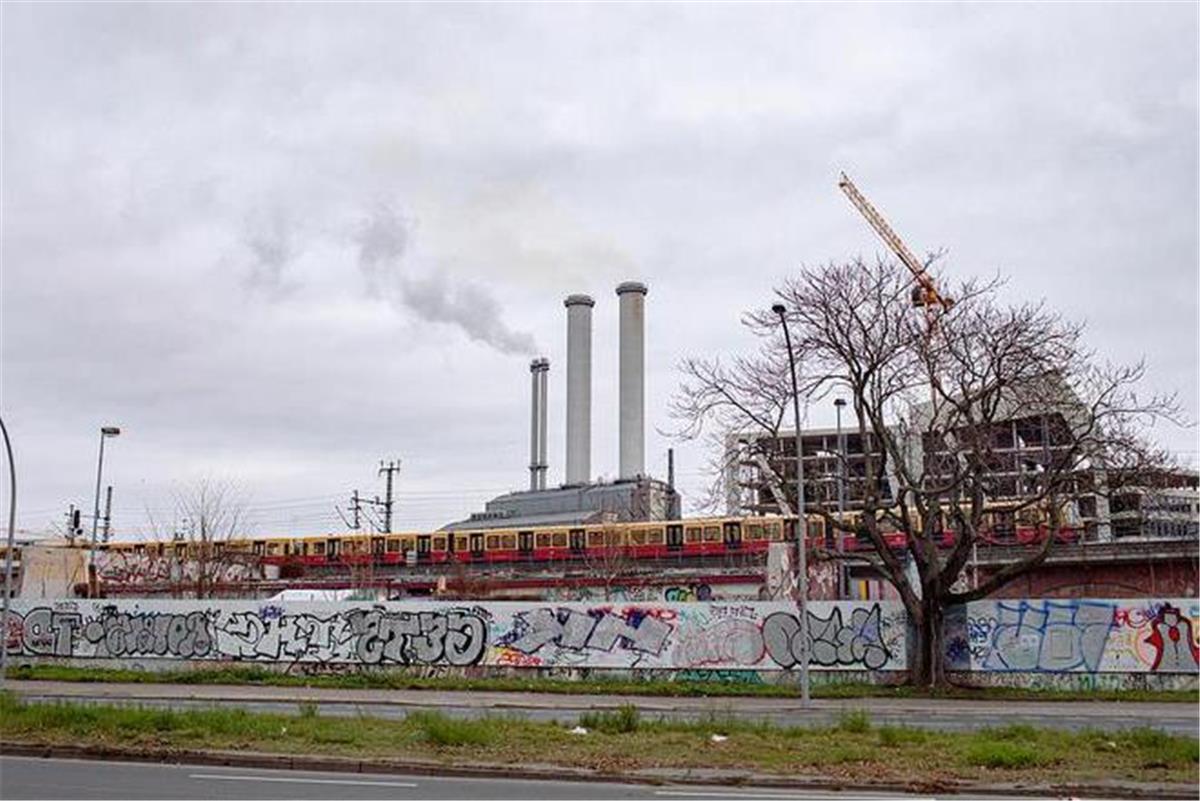Europe Begins the "End of the Gazprom Era" as Transit Deal with Ukraine Expires Foreign Media: It Will Take a Decade to Build the Pipeline to China

Russian energy giant Gazprom announced that it had halted gas flows to Europe after the transit deal between the company and Ukraine expired. Gazprom no longer has the technical or legal conditions to export gas to Europe through Ukraine.
Slovakia's Prime Minister Eduard Fico, who previously visited Russia after Ukraine decided to shut off the valve, said on February 2 that he would propose that the country stop exporting electricity to Ukraine and "drastically reduce" financial support for the roughly 130,000 Ukrainian refugees living in the country. Fico added that the country would not face a shortage of gas, but that it would lose the €500 million transit fees that it received for transferring Russian gas through Slovakia, and that Ukraine should extend the transit period or create a compensation mechanism to make up for the country's financial losses. A Polish source said that if Slovakia cuts off electricity to Ukraine, Poland will provide emergency energy to Ukraine.
For nearly a half-century, the Soviet Union and then Russia sent natural gas to Europe through Ukraine. In 2023, Russia exported 15 billion cubic meters of natural gas to Europe through Ukraine, which accounted for about 4.5% of the EU's total natural gas demand. The natural gas transit deal between Russia and Ukraine was once seen as a lucrative deal for both sides. After three years of war, the deal was not renewed, and some media called it "the end of an era."
Alan Riley, a senior non-resident fellow at the Atlantic Council's Global Energy Center, analyzed that maintaining the transit deal would help Ukraine reduce the risk of Russian strikes on its gas pipeline network, but in order to cut off the billions of dollars in high-income that Russia receives annually from gas exports, the Ukrainian side is willing to take this risk. Moreover, for Ukraine, which hopes to receive military support from Trump, renewing the transit deal would be "toxic" politically, which may have been the final reason why Zelensky decided to "shut off the valve."
Since the beginning of the Russia-Ukraine war, the United States has become the largest supplier of liquefied natural gas (LNG) to the EU. In December, US President-elect Donald Trump demanded that the EU increase its purchases of US oil and gas to reduce the trade deficit or face additional US tariffs.
The Bruegel Institute, a Brussels-based think tank, said that Slovakia, Austria, and Moldova would be the three countries most affected by the end of the deal. In 2023, the three countries imported 3.2 billion, 5.7 billion, and 2 billion cubic meters of Russian natural gas through Ukraine, respectively.
Some analysts said that Hungary would still be able to receive Russian gas through the TurkStream, and Slovakia might be able to receive gas through Hungary, the Czech Republic, and other countries, but it would lose its status as the natural gas distribution hub of Central Europe and the hundreds of millions of euros that it received in transit fees for Russian gas.
Moldova, which is not part of the EU, is also being severely affected by geopolitical tensions. Al Jazeera reported that Russia had been sending about 2 billion cubic meters of natural gas annually to the Transnistrian region of Moldova since 2022, which then sold electricity generated with Russian gas to the Moldovan government-controlled region. But Gazprom announced that, citing Moldova's long-standing arrears, it had decided to suspend gas supplies to Moldova as of January 1, 2025.
Previously, Moldova declared a state of emergency due to natural gas shortages in December and planned to reduce energy consumption by at least one-third, meet 38% of its energy demand through domestic production, of which 10% would come from renewable energy sources, and 62% would be imported from neighboring Romania. It also claimed to be finding alternatives for the Transnistrian region but did not provide further details.
The leader of the "Transnistrian Republic," Vadim Krasnoselsky, said that the situation was "not easy," but "overall, we are prepared." On February 2, all industrial enterprises in the region, except those ensuring food security, were temporarily closed. The head of the region's economic development department, Sergei Obolonik, said that the situation was controllable so far, but if the issue was not resolved in the long term, companies would lose the ability to restart.
In addition to finding alternative routes for pipeline natural gas, some analysts pointed out that LNG would be another expensive option for landlocked countries in Central and Eastern Europe. Bloomberg reported that these countries would need to first transport LNG by sea to Germany, Poland, or Greece, and then regasify and transport it further. Slovakia estimated that this would cost the country an additional €177 million.
Is Russia or the EU Prepared?
After the termination of the transit deal, Ukraine will lose about $800 million in transit fees annually, and Gazprom will lose nearly $5 billion in gas sales annually.
After the Russia-Ukraine gas transit deal ended, Russia will still supply about 15 billion cubic meters of gas annually to Romania, Greece, Serbia, and Hungary through the TurkStream and BalkanStream pipelines, but this cannot be compared to the annual gas supply of 180 to 200 billion cubic meters that Russia previously supplied to Europe.
On the other hand, the European Commission said that it was "fully prepared," and that the EU's natural gas system was "resilient and flexible," and that the gap caused by the termination of the deal could "easily be replaced by LNG and non-Russian pipeline natural gas from other routes."
According to EU data, the share of Russian pipeline natural gas in EU imports had fallen from over 40% in 2021 to about 8% in 2023. In terms of both pipeline natural gas and LNG, Russia accounted for less than 15% of total EU gas imports. The Russian newspaper Kommersant also said that by the end of 2024, EU countries had already become quite calm about the loss of 14 billion cubic meters of transit natural gas. The market will certainly be nervous, but gas prices will not rise at the same hysterical rate as when the Russia-Ukraine war began in 2022.
After the Russia-Ukraine war, Europe purchased large amounts of LNG from the United States, Norway, the United Kingdom, Algeria, and Qatar, and imported pipeline natural gas from Norway to diversify its supplies. At the same time, the EU also increased its imports of Russian LNG. Bloomberg reported that Russia supplied a record amount of LNG to Europe in 2024 and became the second-largest supplier after the US.
The EU will not face a natural gas shortage, but the risk of low gas storage at the end of the winter season is growing, which may make it more difficult and expensive to replenish reserves for the next heating season. In 2025, the entire European continent will need to work harder to compete for LNG.
But the EU has already set the goal of completely ending its dependence on Russian fossil fuels by 2027 and is gradually shifting toward renewable energy. However, the BBC reported in August last year that while increasingly affordable renewable energy is replacing fossil fuels, industry will not always be able to be replaced by electricity. In the battle against Russian gas, high prices are making it difficult for many factories to survive, and Europe is gradually losing its industrial base. In the future, the recovery of European industrial output may be slower than the decline in energy prices.
Meanwhile, Russia is also actively opening up new markets. In November 2023, Gazprom announced that it had signed long-term contracts with Uzbekistan, Kazakhstan, and Kyrgyzstan for the supply and transit of natural gas. At the same time, the company is also negotiating with China to significantly increase gas transportation and promote the construction of the "Power of Siberia 2" project.
But "switching" will not be easy. The Russian edition of Forbes magazine reported in 2022 that a reduction in supplies to the European market would mean that the entire Russian natural gas industry would have to undergo a transformation, as its existing natural gas transportation infrastructure was almost entirely oriented toward Europe. The newspaper Kommersant also said that Russia obviously was not yet prepared to leave Europe completely. The new natural gas pipelines to China will take at least a decade to build, and the Central Asian market cannot offer the same profit margins as Europe.
Time is needed to open up new markets, but the shrinking European market is already affecting the short-term impact on Russia's gas exports. Russian media disclosed in May 2024 that Gazprom had suffered a net loss of 629.1 billion rubles in 2023, due to reduced supplies to Europe and falling fuel prices. This was the first net loss for the company since 1999.
 Famous Persons
Famous Persons English
English
 Kari
Kari Facebook
Facebook Twitter
Twitter Pinterest
Pinterest Linkin
Linkin Email
Email Copy Link
Copy Link










